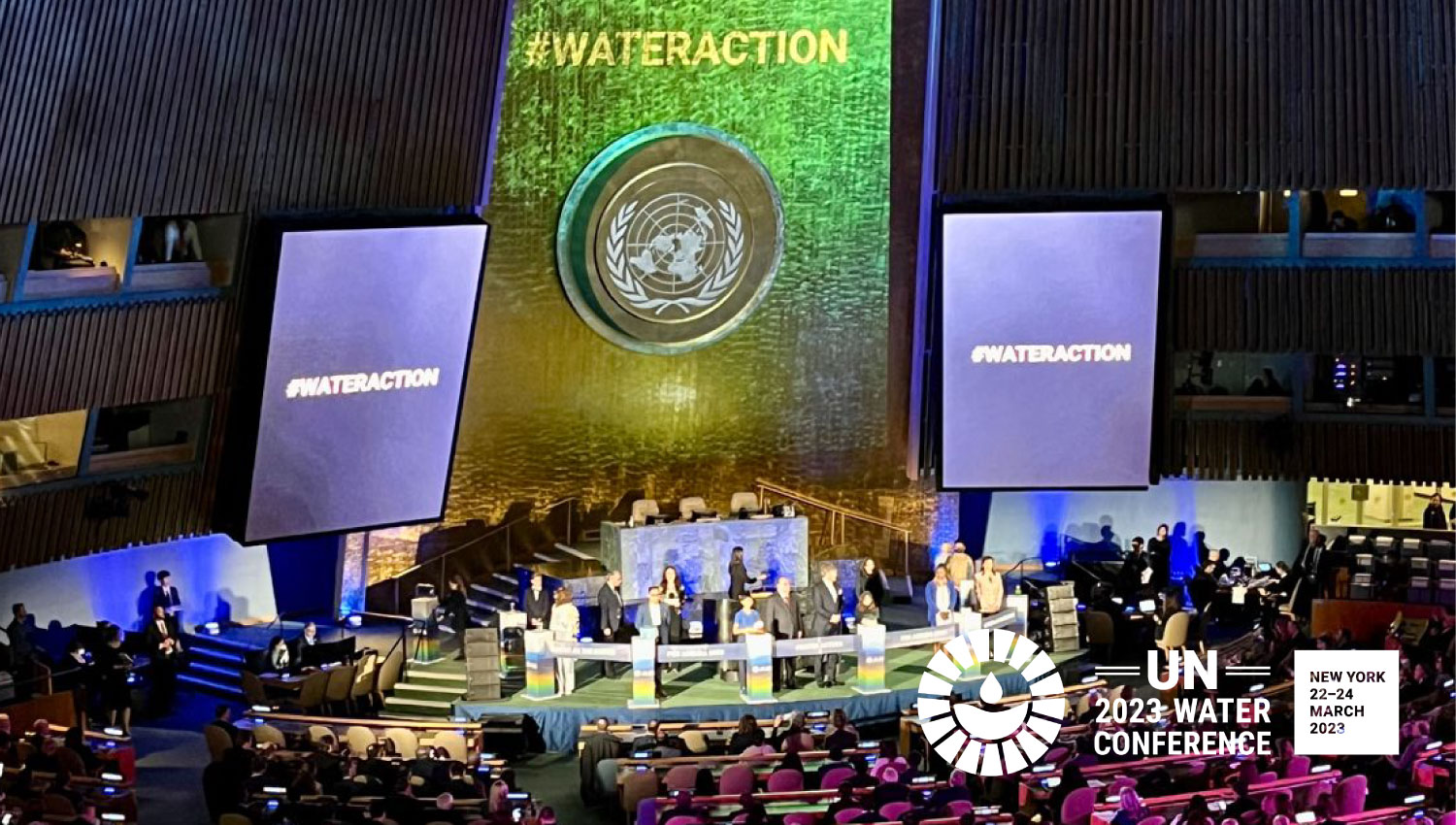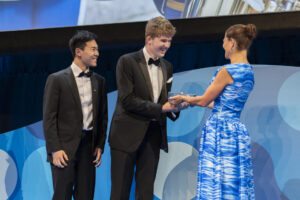Reflections after the UN Water Conference
We have seen support for the human right to water and sanitation and closing of the rural gap.
Alejandro comments that while countries say they are committed, their language was oftentimes not sufficiently concrete or quantified and much remains to be said about when and how things would happen. A positive for him though, is that “we have seen support for the human right to water and sanitation and closing of the rural gap”.
Tove Lexén works in SIWI’s International Policy team and led its youth engagement on site. She noted both positives and challenges ahead, and acknowledged that the conference was, from a youth perspective, more inclusive than other conferences she has experienced before. The youth participation, however, was not geographically representative and came overwhelmingly from the Global North.
“(It) feels like the discussions are finally moving away from including youth as a PR thing, to understanding that interaction is essential to counterwork the water crisis”
Tove co-organised several events, including an intergenerational dialogue with people from different actors, sectors, and ages between 18 and 60. Asked about the conference results, she emphasised an increased understanding of the importance of intergenerational inclusion: “it feels like the discussions are finally moving away from including youth as a PR thing, to understanding that interaction is essential to counterwork the water crisis.”
Despite shortcomings, the conference was able to spark enthusiasm: “Now, this is a milestone event”, said Xanani Baloyi, when asked about the conference outcomes. Xanani works at SIWI’s Africa Regional Centre and is Gender Equality Focal Point.
In New York, she strongly engaged around the Women in Water Diplomacy Network which held in-depth meetings to explore what it means to build inclusive water governance. Xanani welcomed that actors and organisations across sectors were present: “they were able to bring even stakeholders that we do not usually find in water dialogues such as the World Trade Organization”.
“I was happy to hear gender mentioned, alongside indigenous people, young people, and inclusivity.”
Comparing the conference to its predecessor in Mar del Plata more than 46 years ago she highlighted that “the preceding conference did mention gender within other thematic areas and highlighted women’s role in water and sanitation services”. This year’s closing and build up processes towards the conference took it a step further: “I was happy to hear gender accentuated, alongside indigenous people, young people, and inclusivity.” According to Xanani, this reflected how our understanding of gender inequalities has significantly advanced.
Back in Stockholm we meet José Murillo, who supports the Action Platform for Source-to-Sea Management. The conference meant a big success for him, the platform, and the source-to-sea approach in general, which advocates for a holistic management of natural resources and economic development.
The source-to-sea concept has gained momentum in recent years, most notably during the United Nations Oceans Conference. Reflecting on the 2023 Water Conference, José points to an increased understanding for the need for holistic and collaborative management approaches to achieve the Sustainable Development Goals.
“The conference meant an opportunity to strengthen collaborations between freshwater and marine communities that are needed to restore the health of the full water cycle and achieve SDG 6 and 14 together.”
The conference meant an opportunity to “strengthen the collaborations between freshwater and marine communities that are needed to restore the health of the full water cycle and achieve SDG 6 and 14 together.” The key to success lay in the preparation, as the partners of the Action Platform prepared for the conference for over a year. The extent of their success meant a positive surprise: “Throughout the conference even several countries we did not expect made statements mentioning source-to-sea explicitly.” Furthermore, “many side events focused on how to take source-to-sea action forward by sharing lessons learned,” says José.









